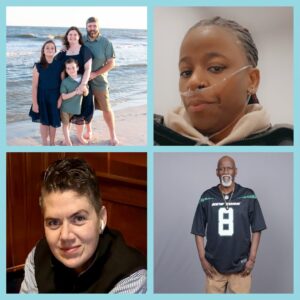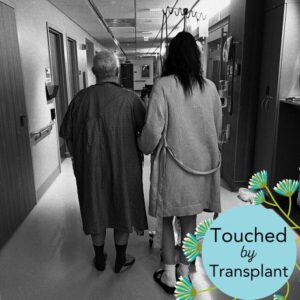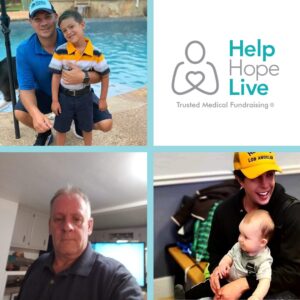Kevin Lopez is a veteran and retired police officer who has been experiencing heart health issues since 2005. We asked him to share his story as he waits for the heart transplant that will change his life.
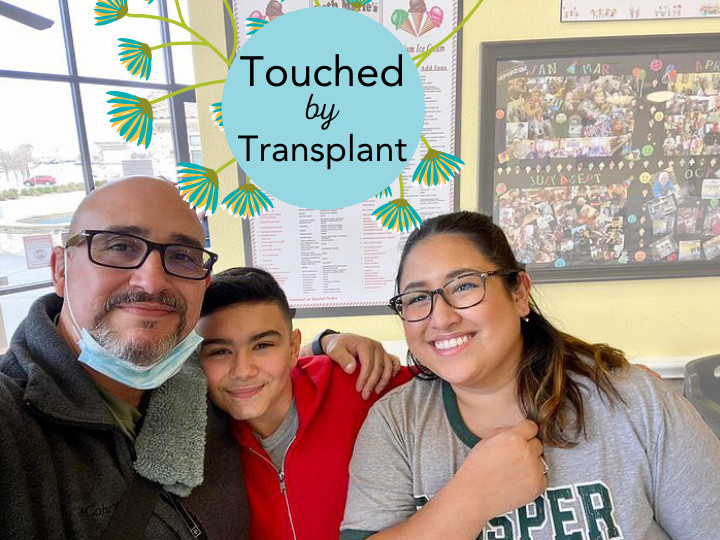
I am an Air Force veteran who was cross-trained as a police officer, firefighter, and EMT before I joined the Plano (Texas) Police Department. During my career, I have had to administer First Aid and CPR too many times to count. I’m thankful for those experiences, because they gave me the ability to respond in a calm manner to these types of incidents—including my own.

It all started when I was working in the Plano Narcotics unit and Collin County Sheriff’s Office. We were running an operation that concluded with a search warrant. For lunch, I bought tuna from a convenience store to eat. As we were searching the home a brief time later, I began to feel nauseous.
I thought I had food poisoning. As my good friend Detective Brian Quinn and I proceeded to drive back to our office in Plano, I had to pull over once to vomit. I was feeling awful with flu-like symptoms and cold sweats, mind fog, and sluggishness. Recounting this event with friends and co-workers later, I realize now that I was not 100% present—it was almost like an out-of-body experience.
Brian offered to drive me home, and we had another detective follow us. About five minutes later, I felt like I needed to vomit again. I looked at Brian and said, “My skin doesn’t feel right.”
And then I dropped to the ground, lifeless.
I rolled partially under the vehicle and cracked my temple on the concrete. Brian saved my life that day by immediately contacting our dispatch via radio and trying to revive me as the Plano firefighters rushed to the scene.
I got to know the firefighters who were there that day and helped save my life, and they told me I was gone: completely flatlined with no sign of a pulse for over five minutes. They continued administering CPR, and by some miracle, they started getting a very slight pulse as I was rushed to the ER. At the ER, a team of cardiologists—including the main cardiologist I still see today—worked to save my life.
I woke up four days later in a daze, wondering why everyone was crying.
I was in a lot of pain after breaking ribs from CPR. So many friends and family members surrounded me. The next several days I spent repeating the story like a broken record.
That first heart attack was hard, but the 18 that came after that never got any easier. I’ve been defibrillated 22 times since 2005.

I just hope somehow that me sharing my experiences helps someone else.
In my mind, I still feel like I can do anything—but my heart quickly reminds me that it is definitely not the case. Over the years, I have gone through peaks and valleys with how I’ve felt physically and how my heart health has limited me in my day-to-day life.
Right now, I’m on an IV of Milrinone—“rocket fuel” that is keeping my heart pumping. My body is responding well to it for the time being.

The past six to 12 months have been extremely hard. Heart failure started to affect me daily: I was retaining a lot of fluid, and I was unable to take prescribed medications due to my blood pressure dropping extremely low. Due to those blood pressure drops, I felt lethargic, nauseous, and mentally checked out. I would lie in bed, sweating, trying not to move. I was so short of breath that I couldn’t walk 20 or 30 feet without having to stop and lean on something to try to catch my breath. Everything I did was physically challenging.
When I experienced a heart event in February, it was the worst I can remember feeling physically.
One thing that I struggled with over and over after every heart attack, defibrillation, stroke, and losing half my eyesight was depression. For a long time, I didn’t recognize it. Now, I am incredibly open with people about my experiences with depression because I have to personally acknowledge its presence to get through it.
At times, depression was a harder fight than my failing heart.
Whenever I have a friend who goes through this kind of experience, I try to reach out and just offer to talk about it with them. I wish there was more attention placed on this aspect of health experiences like mine.

This diagnosis has impacted my social and family dynamics and my hobbies, from fishing and mountain biking to cooking and gym time. On an emotional level, I experience a lot of post-traumatic stress and anxiety. Sometimes it seems like I can feel when an “event” is coming soon. It has affected what I’m able to do as a father with my kids, how I socialize with friends, and how I behave in relationships.
Despite all the challenges I’ve faced, my career helped me to develop what I call the Warrior Mindset. It’s the belief that just because you’re down does not mean that it is over for you. That mindset came from years of tactical and physical training and learning to endure all the heart events.
The Warrior Mindset is the ability to push past pain and trauma and look for the positive.
I worked undercover for a long time and was in some extremely dangerous situations. I was fortunate to learn from a lot of very experienced people how to cope with the stress and fear that came along with the job.
It hasn’t all been positive or great, but I have definitely learned from my experiences. I feel like I have grown so much emotionally, and this journey has taught me many things. The one that stands out the most is never to take things—people, moments, feelings, words, gestures, life experiences—for granted.

My family has suffered as much as I have.
My daughter Nicole, who is 27, and my son Lukas, who is 12, have unfairly had to grow up a lot faster than the kids around them. We have had to have very difficult conversations during these events because I didn’t think I would survive—very final conversations. It has also brought us so unbelievably close together.
My kids are my core—I revolve around them and live through them.
Nicole was the one who did the research about heart transplant financial support while I was still in the hospital with heart failure. Once the medical team told us that I needed a new heart, she knew I was going to need help financially. She wanted to remove that worry from me.

Being on disability with few retirement funds, I needed a lot of help. The medical debt I have accumulated throughout the years has cost me two homes, my credit, and countless sleepless nights. Every time I would start to crawl out of debt, I would have another event, and then we were back to square one.
Just a few of the costs we need to cover are co-pays, medical equipment, home health care, pre- and post-transplant medications once I receive the transplant, transportation, physical therapy, and mental health support.

We chose Help Hope Live for fundraising because of the reputation.
We appreciate the fact that they aren’t out to make a profit and that donations are tax deductible for donors and don’t jeopardize my disability benefits.
My community of friends and family is HUGE: I have a support group that is not just local but worldwide. They are invaluable to me. Their help is overwhelming and humbling. They have been there for not only me but for my kids in so many ways and on so many occasions. I hope I can repay each one in some way.

Even today, 16 years after my first heart attack, I find it very difficult to ask for help.
I have spent my entire career serving my community, and I will do anything for my friends and family at the drop of a hat. I have gotten better at accepting help: it starts with letting go of your pride. That’s also my advice to other patients who are thinking about fundraising: lose the pride.
I’ve learned to embrace the fact that you have a lot of friends who truly want to help you—and even complete strangers who may want to help. People care, and you should allow them to care.
The messages, thoughts, prayers, donations, and goodwill given through Help Hope Live often leave me overwhelmed and in tears.
I imagine a time in the future when I don’t have to be consumed with all the worries that consume me today. I imagine getting back to doing things with my kids and friends without everyone having to worry whether I’m okay.

When I think about life after transplant, I am hopeful for a new beginning.
The reality of what needs to happen for a heart to become available for me is something that is weighing heavily on me, even today. I know that when the transplant happens, it will be by the grace of God—but that does not make the guilt go away.
I talk with a therapist and friends about it. I am part of a heart transplant online support group and listening to everyone’s perspectives and experiences is really helpful.
I pray I am worthy of this gift.

To me, hope means many things, but mainly it represents faith. I started losing faith at one time in this journey. Today, I know that faith is always there for you. I genuinely believe in positivity and looking for the positive in every situation. I have felt sorry for myself on several occasions, and it has never helped. Hope is that tiny light at the end of a dark tunnel that will get bigger as you pull yourself toward it.
Hope has prevailed and will prevail.
To me, celebrating Donate Life Month is incredibly important. It is so easy to register as a donor, and helping someone in their ultimate time of need is so selfless and is a true blessing. I wish more people talked about organ donation regularly and followed through on registering as donors.
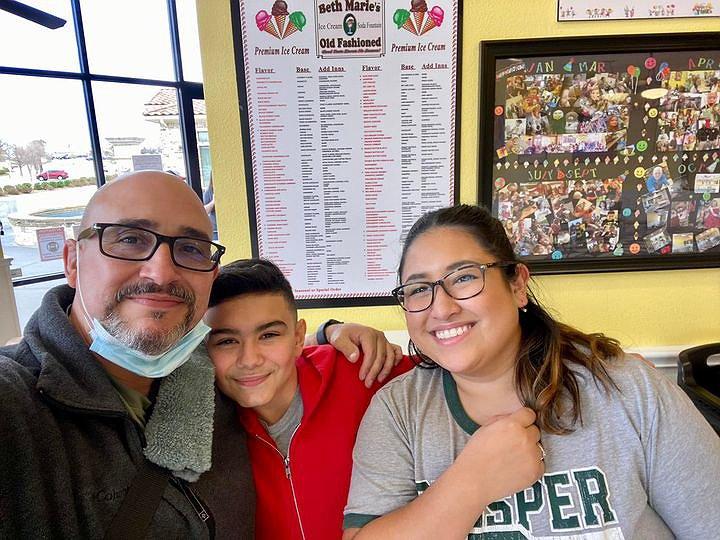
Follow Kevin’s journey on his Campaign Page and on Facebook @kevinshearttransplant and Instagram @heartofawarrior22.
Written by Emily Progin



